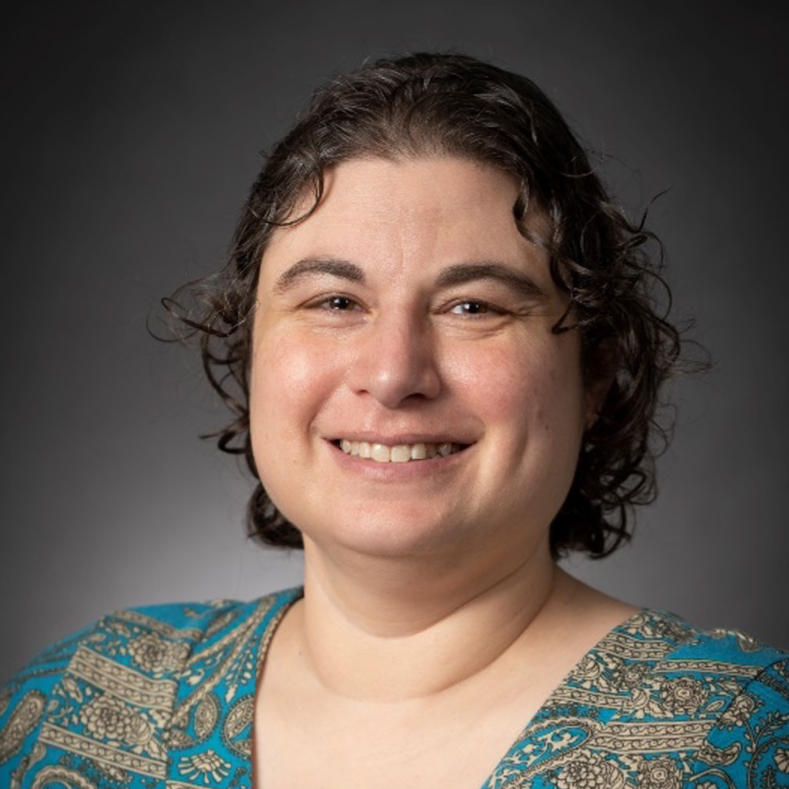Dr. Marisa Exter leading multi-institution research team developing model for computing competencies
Team was recently awarded $3M by National Science Foundation

For decades, the field of computing education has focused on the transfer of primarily technical knowledge from instructor to student. This left limited opportunities for students to apply what they have learned to complex or “messy” problems that are typical in industry. Students also tend to be ill-prepared for non-technical aspects of the job, such as working as part of a larger team, or adjusting the way they communicate when addressing other specialists, business partners, investors, users, and other stakeholders. In part, this can be explained by the focus on knowledge rather than development of technical and non-technical skills and dispositions (such as adaptability or a life-long learning orientation) in the computing curriculum.
Dr. Marisa Exter, associate professor of Learning Design and Technology in the Department of Curriculum and Instruction at Purdue University, is seeking to meet the need for a well-rounded set of competencies that can be incorporated into computing curricula through a funded research project.
Dr. Exter is the Purdue Principal Investigator of a National Science Foundation (NSF) funded research study, Collaborative Research: A Data-Driven Employer-Academic Partnership for Continual Computing Curricular Change. NSF provided $3M for the larger initiative. Dr. Exter’s team at Purdue is in close collaboration with Dr. Mihaela Sabin from the University of New Hampshire to develop a research-based competency model. Dr. Exter’s team received $500,000 of the funding for work to be done at Purdue.
As Dr. Exter explained, “There is not a lot of high-quality empirical research on what competencies are required by computing professionals, especially research that includes a well-rounded understanding of competencies as skills, knowledge, and dispositions. Our interviews and survey of computing professionals across industries will help us understand what is really needed on the job at different points of a career path. Professionals we interviewed also told us and what kinds of experiences they think students should get before they graduate. This will help universities ensure that their programs actually help prepare students for careers, not just their first job.”

Dr. Marisa Exter, associate professor in Purdue University’s College of Education, is Purdue’s Principal Investigator as part of a multi-institution NSF funded research team aiming to address the need for better computing competencies and improved curriculum for computing programs in the US
The team of researchers from Purdue University, University of Alabama, George Washington University, the University of Illinois at Urbana-Champaign, the University of New Hampshire, Rochester Institute of Technology, Tuskegee University, and Shelton State Community College aims to provide strong advocacy for competency-based curricula in computing and proposes the development of tools needed for sweeping competency-driven curricular change in two distinct ways.
First, the researchers will apply their approach to a state university, a Historically Black University, and a community college in Alabama, with a special focus on serving students from underrepresented racial, ethnic, and gender groups in computing. Dr. Exter explained “this will include incorporating our list of competencies into their curricula, but also exploring new styles of teaching and learning to help students gain the experiences they really need to become well-rounded professionals.”
Then, the team will raise awareness and desire for a move towards competency-based education through engagement with post-secondary institutions at a national level. This may involve connecting to the Association for Computing Machinery (ACM), the primary professional organization for computing disciplines since 1947. Since the 1960s, ACM has worked with other professional societies to generate Curricular Recommendations for computing programs including Computer Science, Cybersecurity, Information Systems, Information Technology, Software Engineering, Data Science, and Computer Engineering, While these were previously focused on knowledge areas, new versions are focused on a more competency-based approach. The project has also connected with ABET, a national accrediting agency for applied and natural sciences, computing, engineering, and engineering technology programs; and CSAB, the lead ABET member society for accreditation of degree programs in Computer Science, Cybersecurity, Data Science, Information Systems, Information Technology, and Software Engineering. For over 30 years, CSAB and ABET have driven curricular change in computing programs, and they currently accredit over 440 U.S. programs in computing.
The project will also provide current and future undergraduate and graduate students at Purdue with an opportunity to engage in research that impacts the future of computing curriculum. The team members at Purdue currently include Dr. Shamila Janakiraman (postdoc, project manager and lead on the systematic review of literature), College of Education Learning Design and Technology graduate students Deepti Tagare (contributes to interviews of professionals and managers and serves as instructional designer) and Suzhen Duan (assists in the systematic review of literature), and Polytech undergraduate Jhananthi Janakiraman (graphic designer).
Dr. Exter received her B.S. in Computer Science from Elmhurst College, M.S. in Computer Science from Illinois Institute of Technology, and PhD in Instructional Systems Technology from Indiana University. She joined the faculty in Purdue’s College of Education in 2013. Dr. Exter’s research interests focus on formal and non-formal educational experiences for Computing and Instructional Design professionals, interdisciplinary education, and competency-based education.
Dr. Exter is a member of the Computing Curriculum 2020 Task Force and is a member of the organization’s Competencies committee, and co-coordinator of the Association for Educational Communications and Technology Summer Research Symposium.
Learn more about Dr. Marisa Exter: https://education.purdue.edu//faculty-profiles/name/marisa-exter/
Learn more about the National Science Foundation: https://www.nsf.gov/
Source: Dr. Marisa Exter, mexter@purdue.edu, (765) 496-3358
Writer: Katie Cockerill, kcockeri@purdue.edu